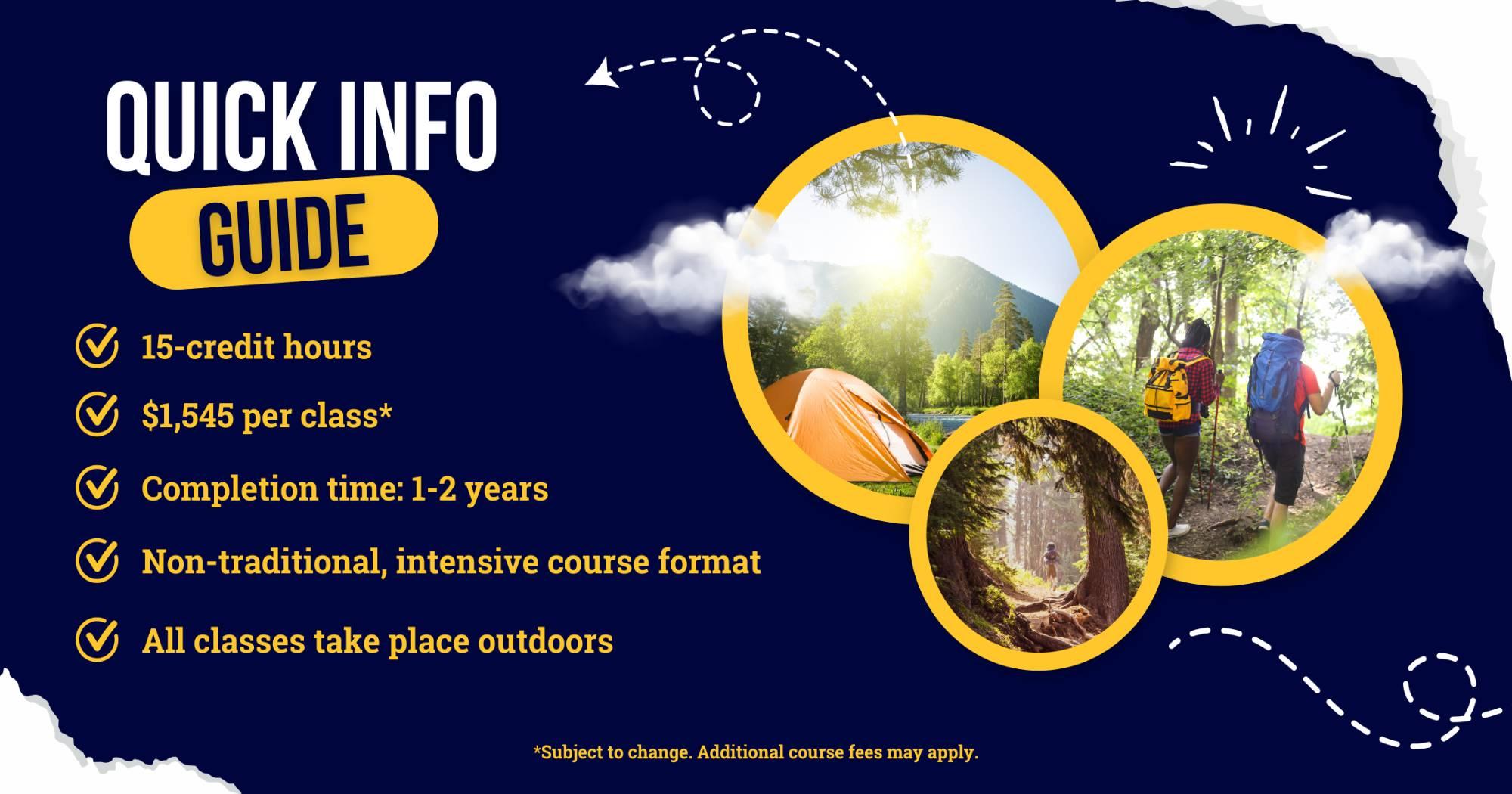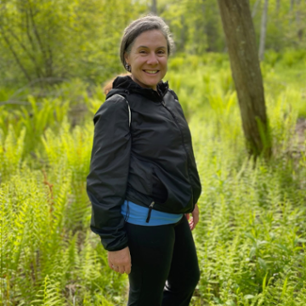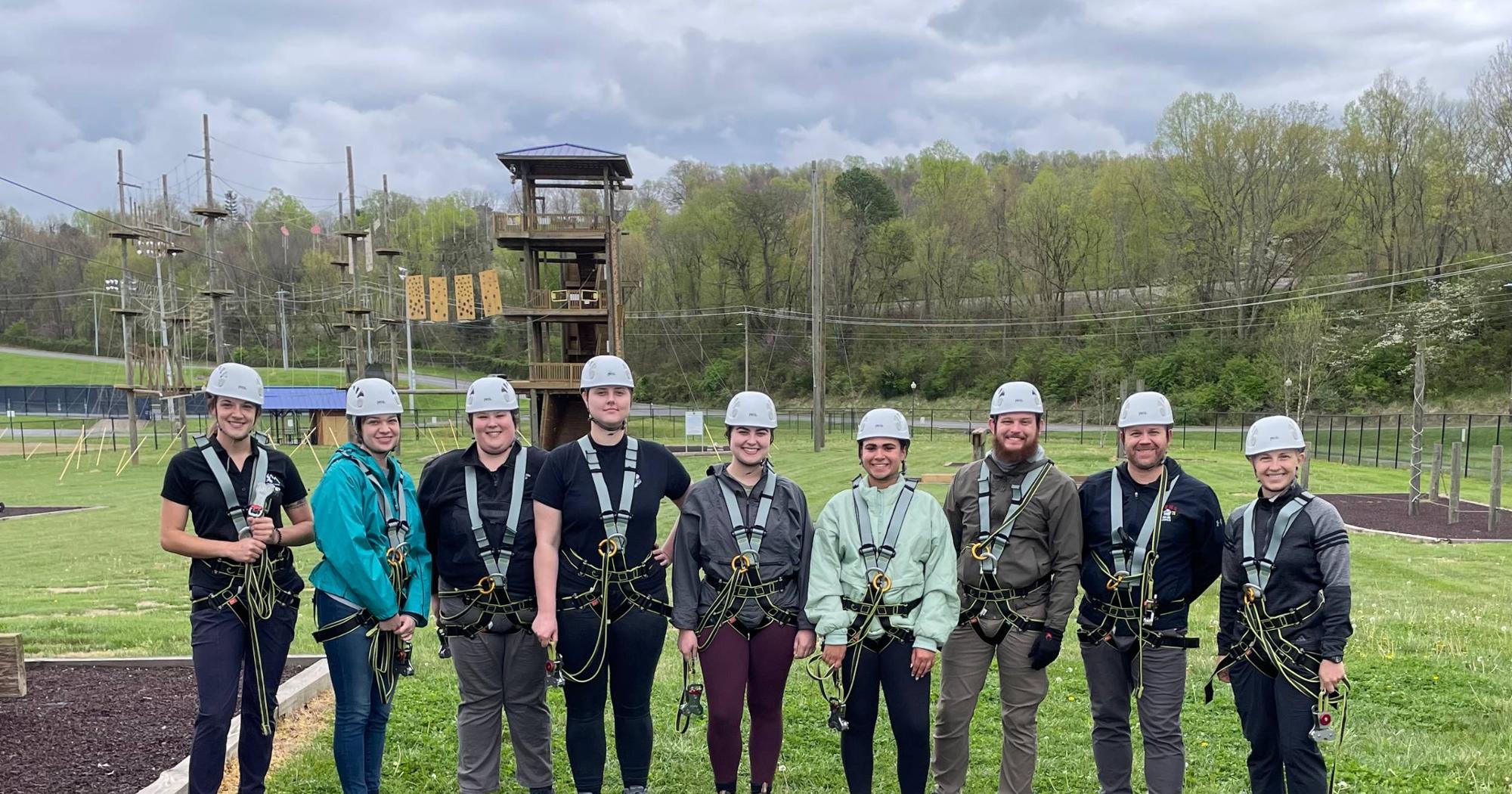Nature-Based Therapy

Overview
The Nature-Based Therapy graduate certificate is ideal for anyone interested in understanding the healing benefits of nature. Research posits that intentional time spent in nature has physical and psychological benefits including decreased blood pressure, decreased cortisol levels (stress hormone), decreased symptoms of depression and anxiety, increased attention, and increased sense of wellbeing. However, humans are more disconnected from the natural world than ever before. Since the technology boom in the early 1990s, there has been a growing dysfunction in our (humans) relationship with the natural world. Grounded in ecocentrism, the Nature-Based Therapy Graduate certificate program offers students the opportunity to critically examine the impact of “moderization”, defined as, “the conglomeration of a society’s urbanization, industrialization, technological advancement, secularization, consumerism, and westernization” (Hidaka, 2012, p. 2) and develop knowledge and skills crucial to the ideological shift necessary to heal our relationship with planet Earth.
Situated in the heart of the Appalachian Mountains, East Tennessee State University is the picturesque location to intentionally foster your relationship with the natural world and hone in on nature-infused wellbeing. Johnson City, Tennessee is conveniently located less than two hours from the Great Smoky Mountain National Park; one hour from Asheville, North Carolina and the Blue Ridge Mountains, and 30 minutes to the nearest Appalachian Trail trailhead.
With specific emphasis on cultivation of the ecological self, the Nature-Based Therapy graduate certificate program offers students foundational knowledge and skills fundamental to harnessing nature’s healing benefits in any setting. The certificate would be most beneficial to professionals in the social and health sciences, but its application extends far beyond those specific fields. The certificate offers comprehensive preparation for the creation of nature-based therapeutic services and programming, as well as for the integration of nature-based therapeutic practices into existing programs and services. Students will develop skills relevant to individual and community healing, development, and wellness, including practical skills for programming logistics, implementation, administration, and risk management. Topics covered include ecopsychology, ecotherapy, Leave no trace (LNT) philosophy, land stewardship practices, common US nature-based program models, multicultural perspectives in nature-based therapeutics, and outdoor behavioral health care.
Coursework
The Graduate Certificate is 15 credit hours and is comprised of one elective and the following core courses:
Introduction to Nature Connection explores the history and overview of the relationship between humans and the natural world. Topics may include forest bathing, the pathways to nature connectedness, values of biophilia, present moment awareness, and mindful sensory experiencing. Due to the nature of this course, it will be expected that students will have immersive experiences in various outdoor settings. This course is offered every fall semester.
Nature-Based Therapy: Theory and Practice addresses the theoretical foundations of nature-based therapy, as well as commonly
used practices, strategies, and interventions. The course surveys research that supports
the theoretical foundations of nature-based interventions. Specific practices and
methods that incorporate nature into the therapeutic process are explored and the
opportunity to experience and practice these techniques in the field is presented.
This course is offered every fall semester.
Nature-Based Programming, Planning, and Implementation introduces planning and implementation of programs and activities in diverse nature-based
settings using ecotherapeutic methods. The course addresses ethics, safety, and risk
mitigation. Topics may include leadership, group dynamics, decision-making, risk management,
responsible recreation and engagement with the natural world, and considerations and
concerns related to specific outdoor activities. This course is offered every spring
semester.
Nature-Based Immersion provides a culminating experience that explores one’s personal relationship with
the natural world, withdrawal from modern technologies, community building, therapeutic
properties of the natural world, and personal meaning exploration. This course requires
a multi-day field-based learning experience and must be completed during your last
semester. This course is offered every spring semester.
All courses are highly experiential, occur outdoors, and require immersive experiences
in various outdoor settings.
Courses are offered in an intensive format, most meeting one weekend per month (Saturdays 9-5 pm and Sundays 9-4 pm). More details in the FAQs.
*While we attempt to offer courses on their regular sequence, course offerings are dependant on enrollment. Courses may be cancelled due to low enrollment.*
FAQs
What is Nature-Based Therapy?
Nature-Based Therapy, also known as Ecotherapy, is defined as the intentional integration
of nature into the therapeutic process. Nature-Based therapy is an umbrella term that
includes a wide range of therapeutic activities including, but not limited to, wilderness
therapy4,6, adventure therapy2,3, horticulture therapy8, animal assisted therapy1, forest therapy7,9, sound healing5, walk and talk therapy10. Studies have shown that contact with nature can lower blood pressure, reduce anxiety,
and increase cognitive functioning. By blending evidence-based therapeutic techniques
with natural settings, nature-based therapy offers a holistic alternative or complement
to traditional treatments, aiming to improve mental health outcomes and foster a deeper
connection with the environment.
Is the program offered online?
The program is currently only offered in person, however our classes are offered in
an intensive format, meeting less frequently for longer periods of time. Additionally,
all class meetings have the option for students to camp on site.
What is the “intensive” course format?
Our program is designed for working professionals and current graduate students. In
order to make our classes more accessible, we offer an intensive course format meaning
we meet less frequently for longer periods of time, still resulting in the same amount
of face-to-face instruction time as a traditional 15-week course.
Introduction to Nature Connection meets one weekend per month for 3 months (August, September, October) in the Fall semester.- Nature-Based Therapy: Theory and Practice meets one weekend per month for 3 months (September, October, November) in the Fall semester.
- Nature-Based Programming, Planning, and Implementation meets one weekend per month for 3 months (February, March, April) in the Spring semester.
- The Nature-Based Immersion course is the culminating course and requires a multi-day field-based experience. The course is a week-long intensive that takes place over Spring Break (mid-March) each Spring semester. Staying on site for the duration of the week is required.
How much does the certificate cost?
Each class costs approximately $1,545 plus course fees. Tuition and fees are subject
to change. For the most up-to-date information, please visit The ETSU School of Graduate Studies.
Is it open to undergraduate students?
No, the nature-based therapy courses and certificate are only open to graduate students.
However, if you are interested in exploring this topic at the undergraduate level,
you may want to explore ETSU’s course on Ecopsychology (PSYC 3500).
What can I do with an NBT certificate?
The Graduate Certificate in Nature-Based Therapy provides students with the knowledge
and skills necessary to integrate nature into therapeutic practices using best practices.
Do I need experience in the outdoors to be successful in this program?
We welcome students with various levels of outdoor experience. No prior outdoor experience
is necessary to be successful in the program, however it helps if incoming students
have a positive view toward nature. This program may not be the right fit for anyone
with an aversion to nature, serious phobias related to nature or prior traumatic experience
in the outdoors.
How do I apply?
All applications are processed through ETSU’s School of Graduate Studies. Please check
out our Application Instructions for detailed information.
How long does it take to complete the certificate?
Typically, students can choose to complete the certificate in one year (2 courses
per semester) or two years (1 course per semester).
Can the classes be taken individually as electives for an already-enrolled graduate
student?
Yes! We encourage students to explore our Introduction to Nature Connection course
as a stand-alone graduate elective. Also, currently enrolled graduate students at
ETSU who would like to pursue the full Graduate Certificate may also reduce the total
number of credits in their program of study by building in nature-based therapy courses
as their electives. Please note that you should discuss this with your advisor to
be certain of it will count toward your elective requirements.
Is the NBT certification program accessible to individuals with physical disabilities?
Yes, nature-based therapy is for everyone. Each class is thoughtfully designed around
the students enrolled in the course. Students complete an intake to provide the course
instructor with the necessary information to plan activities that are accessible to
everyone in the course.
Is Nature-Based Therapy empirically supported?
Yes, the past two decades have provided significant scientific evidence supporting
the physical and psychological benefits of contact with nature.
Do I need training in first aid to take the NBT courses?
No, students do not need any first aid training. However, as part of the coursework,
you will learn about the value of wilderness first aid certification and discuss what
level of first aid training you would need to responsibly conduct specific types of
therapeutic outdoor activities.
What is Leave No Trace?
"Leave No Trace" refers to a set of outdoor ethics principles aimed at minimizing
human impact on the natural environment while recreating outdoors, essentially leaving
a place as you found it. Find out more here.
Application Instructions
Detailed application instructions are located here.
Testimonials
Coming soon!
Faculty
-
Dr. Bethany Novotny

Dr. Novotny is an Associate Professor at East Tennessee State University and coordinator of the Nature-Based Therapy Graduate Certificate program. A mental health counselor and outdoor educator, she specializes in using nature connectedness as a therapeutic tool for healing, incorporating mindfulness and somatic approaches into carefully crafted nature-based experiences. Dr. Novotny is a certified Wilderness First Responder, a Leave No Trace Level 2 Instructor, and has over 90 hours of advanced training in nature-based therapies.
For more information about this certificate program, contact Dr. Bethany Novotny.
-
Kim Bushore-Maki

Kim is an adjunct faculty member and soul-driven entrepreneur who understands the undeniable urge to create a business, and a life filled with meaning and purpose. Her vision of opening a center where people could heal and grow led her to open Shakti in the Mountains in Johnson City, Tennessee: a place where the creative, feminine energy is nurtured and valued.Kim is a licensed professional counselor and a yoga teacher. She completed the Phoenix Rising Yoga Therapy program, the Shake Your Soul Yoga Dance program and the Somatic Nature Therapy Institute's Collaborations with the Natural World training. Kim is very interested in somatic expressive therapy, archetypal psychology, gardening, herbalism, astrology, wisdom traditions, and regenerative economics.Kim continues to build and to support inclusive, vibrant communities. She spends most of her time mentoring leaders, guiding healing programs, and providing mental health counseling. Kim received her Master's in Counseling from East Tennessee State University. Find out more about her work here.
-
Shae Keane

Shae is a mental health counselor and adjunct faculty member. She played an integral role in the conceptualization and development of the Nature-Based Therapy Graduate Certificate program at ETSU. Shae has a passion for facilitating transformative nature-connected experiences through relationship with plants, animals, wild landscape, and authentic community. She is particularly inspired by the meaningful impact animals have on people and loves partnering with them in the educational and therapeutic process. Shae owns and operates the Fauna Forest Farm in Jonesborough, TN, which is a partner site for the MA Counseling program. Find out more about her work here.

Land Acknowledgement
ETSU is a community of educators and learners residing on the ancestral homeland of the Cherokee, also known as the Tsalagi people. The Cherokee constituted one of the largest politically integrated tribes at the time of European colonization of the Americas.
 Stout Drive Road Closure
Stout Drive Road Closure 













